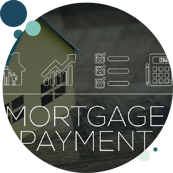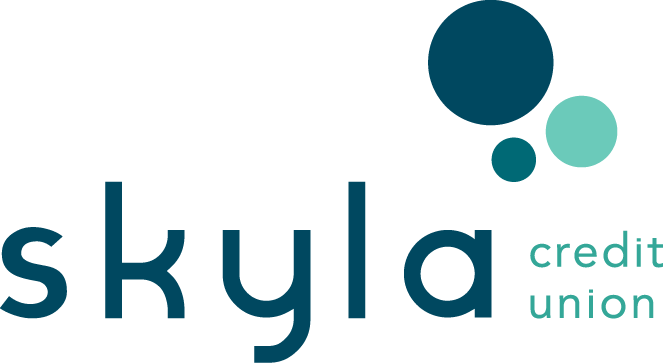When it’s time to make mortgage payments you want to make sure you have enough to pay your monthly mortgage and loan payments plus monthly expenses while also saving...

Phew – that’s a lot to factor. So… what is the magic number?!?
You might even ask: When it comes to a mortgage payment, what percent of my monthly income should I budget for? Is there a specific percentage that lenders recommend? How can I know how much to afford each month without putting too much financial pressure on myself?
These are all valid questions and today we're going to tackle them!
here's a look at what we'll cover
|
|
how much of my monthly income should go towards a mortgage?
One of the most important things to consider when buying a home is how much of your income you should be spent on your mortgage. To help determine this, you can:
- Calculate your take-home pay: This is the total amount of money you earn each month before taxes and other deductions are taken out.
- Estimate your monthly expenses: Once you have your gross monthly income, you’ll need to estimate your monthly expenses. This includes things like your mortgage payment, insurance, food, utilities, and any other regular bills that you have.
- Determine your cash flow: After subtracting your monthly expenses from your gross monthly income, you will be left with your monthly cash flow. This will give you an idea of how much money you have left over each month after all your bills are paid.
Once you have an idea of how much money you have leftover you can plug and play some numbers using a mortgage calculator to help you determine the loan amount you may be able to afford. And we have just the thing:
rules & models
There are some rules and models you can follow to help you determine how much mortgage you can afford. Some of the following methods are what lenders use to help determine how much a borrower can afford when getting a mortgage
28% gross income rule
This rule is one of the most used guidelines for determining how much of your income you should spend on a mortgage. Under this rule, you would calculate your monthly mortgage payments so that they are no longer than 28% of your pre-tax monthly income.
Do this by finding your monthly gross income on your paystubs and multiplying the number by 0.28. That number is the maximum amount you should spend on your mortgage each month.
Let's say your monthly pre-tax income is $4,000. Multiplying that by 0.28 gives us a maximum mortgage payment of $1,120. This means that you should aim to keep your payments below $1,120 to stay within the 28% rule.
25% post-tax model
This is another method borrowers use for determining how much of their income they can afford for a mortgage. This technique uses your net income rather than your gross income, so it's more precise in measuring what you can afford each month. Multiply your monthly net income by 0.25 to use this equation.
For example, if you make $4,000 a month after taxes, multiply $4,000 by 0.25. This would give you a total of $1,000 that you could afford to spend on your mortgage each month.
Psst... keep in mind that this method may not work for everyone due to different tax laws in various locations.
35/45 debt model
This is another method for calculating how much money you can afford to put toward a mortgage is the 35/45 debt model. This debt model considers your whole monthly debt, including your mortgage payment. You'll also need your pre-tax and post-tax earnings figures.
If other obligations are minimal, this approach allows you to devote more money to your mortgage each month. This calculation also offers a minimum and maximum range for your outstanding debts. Keep in mind that the amount you can afford may change as your financial situation changes, so it's important to reassess on a regular basis.
what factors determine how much house i can afford?
debt-to-income ratio (dti)
Your debt-to-income (DTI) ratio is the percentage of your monthly income that goes towards paying down debts, including credit cards, car loans, and student loans.
Mortgage lenders use your DTI to help them determine whether you're a good candidate for a mortgage.
A high DTI can make it more difficult to qualify for a mortgage and may result in a higher interest rate. However, there are ways to lower your DTI, such as paying down debts or increasing your income.
To calculate your DTI, simply divide your monthly debt obligations by your monthly income. For example, if you earn $3,000 per month and have monthly debt obligations of $900, your DTI would be 30%.
Generally speaking, a higher DTI may make it more difficult to qualify for a mortgage or to get the best mortgage terms.
credit score
With credit scores, lenders like to see scores of 700 and higher which will give a favorable interest rate. If you're looking to build or improve your credit score, it'll help to:
- Pay On-Time: Missed or late payments can have a major negative impact on your score. A 30-day late payment could decrease your score by 60 points.
- Get Current: If you’re behind on your payments, get current and make an effort to stay current. Your score should increase the more you’re on time.
- Keep Balances Low: On revolving credit, such as a credit card, make sure to keep your balance low. You should also try to keep your utilization under 30%.
- No New Cards: Lenders want to see a healthy amount of credit lines open, but not too many. Plus, opening a lot of new accounts while you’re trying to build credit may hurt as rapid account buildup looks risky.
If you're looking to improve or want to understand more about credit scores, I have more credit tips that will help you see results:
QUICK TIP: Not all lenders require borrowers to have an excellent credit score to qualify for a mortgage. There are mortgage programs available if you have a credit score as low as 500. I'll get into those mortgage specifics in a bit. |
proof of income
When supplying documents to the lender, proof of income will be required. Lenders like to see that your income is enough to cover new mortgage payments and other costs. So, they may require at least 30 days of your most recent pay stubs. They'll want to verify that your proof of income is true. So you may also be asked to bring W-2 forms and tax returns.
down payment
In most cases, a down payment may be required in order to get the loan. The down payment is the portion of the purchase price that you pay upfront, and it's typically between 3% and 20% of the total purchase price.
For example, if you're buying a $200,000 home, you would need to make a down payment of $40,000. In some cases, you may be able to get a mortgage without making a down payment. Home loans like VA loans, USDA loans, and lenders like credit unions don't always require a down payment.
However, these loans often require special qualification criteria, and they typically come with higher interest rates and fees. As a result, it's always best to weigh your options when making a down payment.
how can i lower my monthly mortgage payments?
shop around for the best interest rates and terms
When you shop around, you may find lenders who are willing to offer you a lower interest rate.
get a shorter loan term
A shorter loan term will mean that you must pay less interest over the life of the loan.
Psst...more than likely, a shorter loan term means a costly monthly mortgage payment, but you could be paying less overall on a shorter term.
make a larger down payment
A larger down payment will help to lower your monthly payments because you'll need to borrow less money.
refinance your mortgage
Refinancing your mortgage can get you a lower interest rate and may also help you to get a shorter loan term.
get rid of pmi
Private mortgage insurance is insurance that protects the lender if you default on your loan. If you have private mortgage insurance, it will add to your monthly payments. You may be able to get rid of private mortgage insurance if you:
- Refinance your mortgage
- Make extra payments
- Reach a certain amount of equity in your home
make extra payments
Making extra payments can help you to pay off your loan sooner and may also help you to save money on interest.
If you make bi-weekly mortgage payments instead of monthly payments, you will make 26 smaller payments over the course of a year. This will amount to the same as making 12 larger monthly payments, but it can help you to save money on interest because you will be paying down your loan more quickly.
QUICK TIP: This may not be doable for all borrowers but if you have the extra funds, think about the interest you're avoiding by paying off your mortgage loan sooner.
|
am i ready for a mortgage?
When determining how much to put towards a mortgage, it's important to consider your overall financial picture. You don't want to put too much financial pressure on yourself by committing to a mortgage payment that you can't afford.
 Mortgage lenders will typically want to see that your monthly mortgage payment is no more than 28% of your gross monthly income. So, if you're looking at a $1,000 monthly mortgage payment, it’ll be best to have a gross monthly income of at least $3,571 to comfortably afford that mortgage payment.
Mortgage lenders will typically want to see that your monthly mortgage payment is no more than 28% of your gross monthly income. So, if you're looking at a $1,000 monthly mortgage payment, it’ll be best to have a gross monthly income of at least $3,571 to comfortably afford that mortgage payment.
Obviously, the more income you have, the easier it will be to afford a higher mortgage payment. But even if your income isn't extremely high, you may still be able to afford a higher mortgage payment by cutting back on other expenses. Here are some more tips on how much house you can afford>
how can i start my home buying journey?
First, you need to figure out which home loan is right for you. Check out the following article for a list of mortgage options you could qualify for and its benefits:
Once you know the mortgage that is right for you and you're serious about moving forward, then it's time to get pre-approved! Getting pre-approved for a mortgage is a crucial first step in the home-buying process. By getting pre-approved, you'll have a better idea of how much you can afford to spend on your new home. In addition, getting pre-approved will help you to avoid any unexpected financial surprises down the road.
If you have any questions, our Mortgage Loan Officers are here for you. You can send an email, give us a call at 704.375.0183 x 1525, or visit any of our branches.
As Content Strategist behind the Learning & Guidance Center, Yanna loves showing just how doable finance can be. Whether it’s simple tips, step-by-step guides, or comparison charts, she’s passionate about helping readers take charge and reach financial freedom with confidence
more resources for your home buying journey
How Much House Can I Afford?
Wondering how much house you can afford? Knowing can save you from spending most of your paycheck on home expenses. Here's what you need to know.
7 min. read
How Do I Choose the Best Mortgage Product for Me?
Unsure of which mortgage product is best for you? Here's a breakdown of each type of mortgage, so you can make the best decision for your unique situation.
6 min. read


.png)







